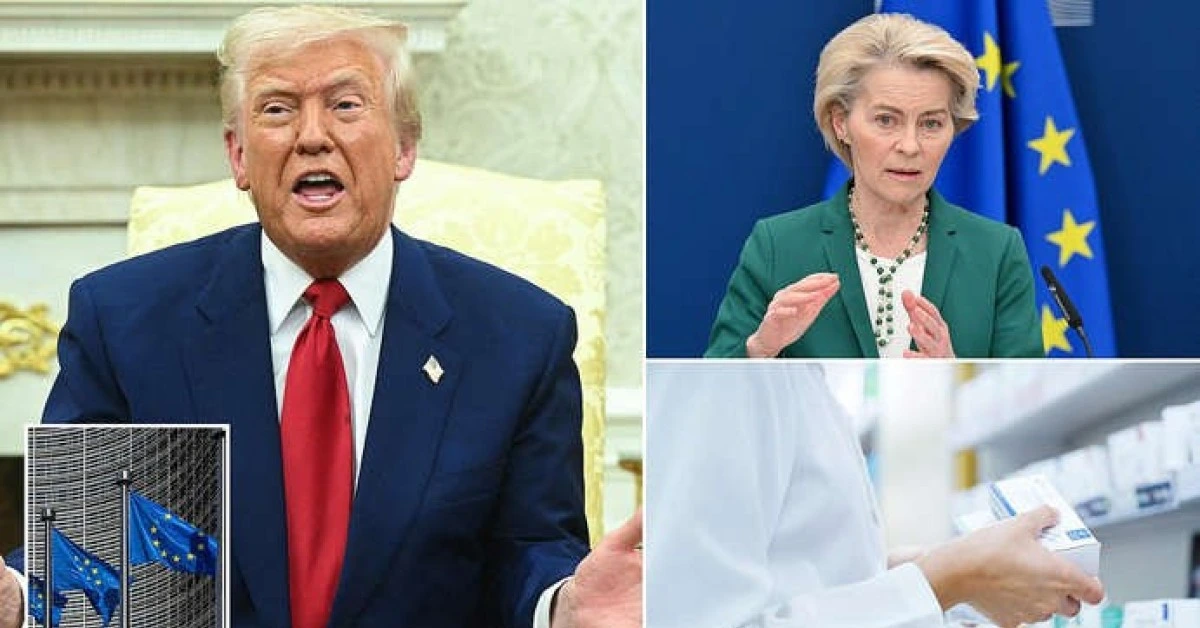
BELGIUM – As U.S. President Donald Trump escalates his plan to impose steep tariffs on pharmaceutical imports, European pharmaceutical leaders are warning that the EU could face a mass exodus of investment unless it enacts urgent policy reforms.
In a stark message delivered to European Commission President Ursula von der Leyen, the European Federation of Pharmaceutical Industries and Associations (EFPIA) shared results from a recent survey of 18 major member companies.
The findings paint a grim picture: without swift and radical policy change, much of the €165 billion in planned capital investment and R&D spending over the next five years could be diverted to the United States.
The EFPIA report indicates that 85% of approximately €50.6 billion in capital investment and up to 50% (around €52.6 billion) of research and development budgets currently slated for the EU are at risk of relocation.
Alarmingly, companies say that €16.5 billion of that could shift within the next three months alone—spurred in part by the full implementation of Trump’s global tariff package, which includes a 104% rate on imports from China.
Though pharmaceuticals were initially exempt, Trump said this week that “major tariffs” on drug imports are imminent.
Speaking at a National Republican Congressional Committee dinner, he said, “We’re going to put tariffs on our pharmaceuticals, and once we do that, they’re going to come rushing back into our country because we’re the big market.”
The EFPIA warns that the U.S. is already outpacing Europe across key investor metrics: capital availability, speed of regulatory approval, intellectual property protection, and incentives for innovation.
With Trump’s protectionist measures gaining traction, the risks to Europe’s pharma sector have reached a tipping point.
Pharma executives are calling for reforms that strengthen the EU’s IP framework and streamline regulatory processes—especially around clinical trials and digital health infrastructure.
They also emphasized the need for coherent environmental and chemical legislation to maintain a resilient supply chain.
After the meeting, von der Leyen acknowledged industry concerns, particularly regarding the potential impact of U.S. tariffs on global medicine access. She expressed openness to seeking a “negotiated solution” with Washington.
If the EU fails to act swiftly, pharma leaders caution, it could lose not just investment—but its competitive edge in life sciences altogether.
XRP HEALTHCARE L.L.C | License Number: 2312867.01 | Dubai | © Copyright 2025 | All Rights Reserved